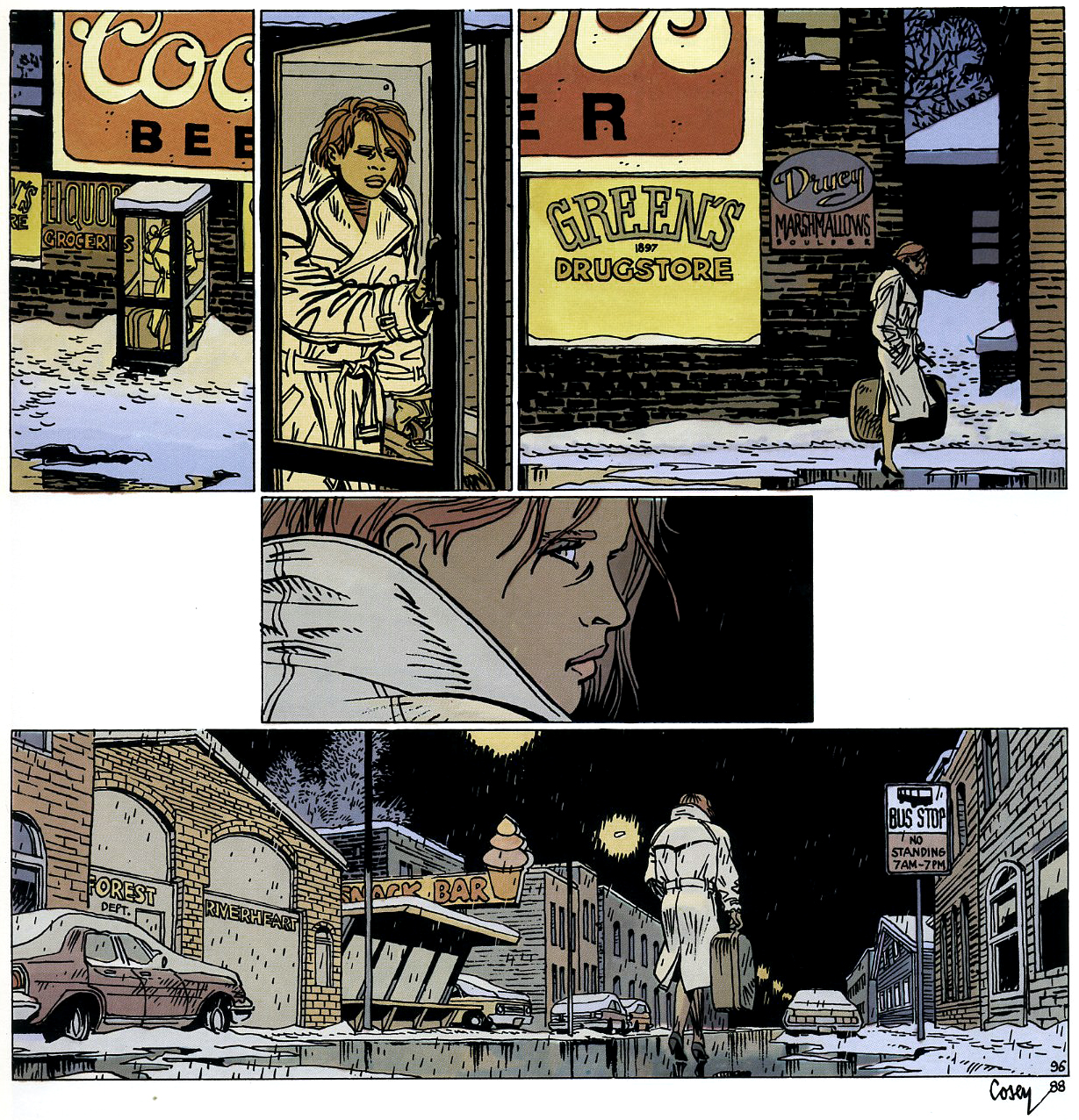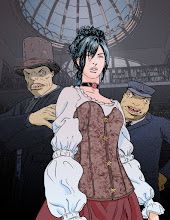Shirley, immersed in a dramatic and at times tragic story, is perhaps the one who makes the bitter tale of two Vietnam veterans bearable, without losing an ounce of gravity but gaining freshness. Cheers to her and her lack of heroism...
Cosey's journey to Italy is closer to cinema and literature than to drawn stories in general. After working for more than a decade on the series "Jonathan," Cosey delved into a topic that fascinates Europeans: Vietnam. The war they did not participate in, but could not avoid; was the dark side of the American dream, which was no less interesting for being dark. The eclecticism of In Search of Shirley is evident; the characters seem to come from the movie The Deer Hunter. The interesting thing is that Cosey's perspective on veterans and their stories can, in a way, be more objective than that of an American, and, in any case, over the years, the Vietnam War has become an event that affected the thinking of all the West, as well as the countries that were part of the armed conflict.
The story opens with Ian and Art, two friends traveling to Italy years after the war, and the strange sensations the reunion with an old shared love, Shirley, produces in them. Little by little, the reunion will rekindle memories, both sweet and bitter. A love triangle trying to adopt a Thai girl, a sinuous woman playing with two men over the years, and the war traumas of a veteran are the elements that Cosey uses to build a complex plot that unravels over two carefully crafted books, where the deployment of settings worldwide, like in a film by Wim Wenders, contributes to creating the atmosphere of a story that is universal. At times, one does not feel like reading a European author but rather a creator from the late 20th century.
Other Europeans had made comics on the theme of Vietnam (the most interesting being The Hall of White Lies by Alain Korkos), but Cosey's is not only the most mature but also the most complete. The vision of the war, years later, is not loaded with the rage of Apocalypse Now or Full Metal Jacket, but with a warning about the deep wounds that the conflict leaves in people, across generations. Later, Cosey will insist on the theme of war, veterans, tenderness, and forgetfulness in another book, Hanoi Saigon, but that might be the subject of another review.












No comments:
Post a Comment